Our Mission
The mission of the Minnesota Association of Black Lawyers is to
- Promote and support the professional development of Black lawyers, judges, and law students in Minnesota;
- Address the legal issues affecting the Black community in Minnesota; and
- Advance education, excellence, and racial equity in the pursuit of justice.
Amended on February 26, 2018
MABL Founders
MABL was founded in September 1995 by a group of African American lawyers who believed in the principles of the National Bar Association and wanted to extend those principles by establishing a local chapter of the NBA in Minnesota.
Our Legacy
MABL was founded in September 1995. During its relatively short but storied history, MABL members have served in several legal capacities ranging from service on the Minnesota Supreme Court, Chief Judge of the Minnesota Court of Appeals, Chief Judge of the Hennepin County Family Court, federal and state court judges, administrative law judges, magistrates, referees, federal, state, county, and city prosecutors and U.S. Attorney for the District of Minnesota.
MABL members are also well represented throughout Minnesota in private practice, with some members comprising the largest minority-controlled law firm in the Midwest. Members of the organization have been honored as "Up and Coming" attorneys in Minnesota by Minnesota's leading periodical devoted exclusively to lawyers; others have been identified as "Super Lawyers" and "Rising Stars" by other leading publications, as well. In addition, various judges have been recognized for their judicial expertise, their commitment and dedication to service, among other things.
The continuing need to address issues encountered by Black attorneys, other attorneys of color, and minority communities does not disappear. Accordingly, included among the many purposes of MABL are the steadfast convictions of promoting and supporting the professional development of Black lawyers in Minnesota, the education of Black students desiring to enter the legal profession, and the education of Black citizens regarding issues pertaining to the American judicial system.
MABL Bylaws
Article I. Membership
Section 1.1. Classes of Membership.
There shall be four classes of membership in the Association: Regular, Associate, Student, and Organizations. Organizations may include corporations, law firms, non-profits, and governmental agencies with a presence in Minnesota who are committed to supporting the values, goals, and mission of MABL. Organizations are not voting members. Organization memberships are renewable annually. Regular Membership is available to any attorney who is admitted to practice and is in good standing before the bar of the highest court of any state. Associate membership is available to any individual who is not otherwise eligible for regular or student membership. Student membership is available to any individual enrolled in an accredited law school.
Section 1.2. Participation and Voting.
Regular, associate, and student members of the Association are eligible to participate in all meetings and activities of the Association without regard to class of membership; however, only regular members are eligible to vote in any election of officers and at-large directors of the Association, or on amendments to the Articles of Incorporation or Bylaws of the Association.
Section 1.3. Application for Membership.
Each voting and and non-voting member shall, as a condition of membership in the Association, complete an application for membership and pay annual dues to the Association.
Section 1.4. Annual Dues. The annual dues of the Association shall be $125 ($95 for attorneys employed in the public sector) for regular membership, and $75 for associate membership. However, the Board of Directors may, in its discretion, reduce the annual dues payment for any attorney applying for regular membership who is employed by a legal services agency, or for any attorney for whom payment of annual dues for regular membership would be a financial hardship.
Annual student membership dues are $25. The Board of Directors recognizes the importance of student participation and membership. Therefore, the Board of Directors may, at its discretion, reduce or make free the annual dues payment for student members. The Board of Directors will determine the status of student membership at the beginning of each bar year (i.e., on or before July 1st of each year). Annual dues for Organizations shall be set by the Board.
Article II. Board of Directors
Section 2.1. Composition of the Board.
The Board of Directors shall consist of the President, Vice-President, Secretary, Treasurer, Immediate Past President, five other members elected at large by the Association at its annual meeting, and student members selected as provided in Section 4.3, infra.
Section 2.2. Meetings.
The Board of Directors shall meet regularly, and not less than six times each year, at a time and place designated by the President. A special meeting of the Board of Directors may be called by the President, or by written request of three directors.
Section 2.3. Quorum.
The presence of at least five directors at a meeting of the Board of Directors shall constitute a quorum.
Section 2.4. Written Action.
The Board of Directors may act by written action taken in accordance with Section 7.2 of the Articles of Incorporation.
Section 2.5. Student Directors.
Student directors shall not vote, but shall be otherwise eligible to participate in Board of Director meetings.
Article III. Officers
Section 3.1 President. The President shall be the presiding officer of the Association and its Board of Directors; shall be responsible for the implementation of the policy and actions of the Association and the Board; and shall be the public representative and spokesperson of the Association. At the annual meeting of the Association, the President shall present a written report on the progress of the mission and work of the Association during his/her term of office.
Section 3.2. Vice-President. The Vice-President shall assist the President in the execution of his/her duties; shall be the presiding officer at meetings in the absence of the President; and shall perform such other duties as may be directed by the Board of Directors.
Section 3.3. Secretary. The Secretary shall keep a record of the proceedings of the Association and of the Board of Directors, including minutes of their meetings. The Secretary shall keep and maintain the correspondence of the Association and of its officers; shall keep and maintain a full and accurate roster of, and necessary records pertaining to, membership of the Association; shall notify the officers, directors and members of the Association of their respective meetings; and perform such other duties as may be directed by the Board of Directors.
Section 3.4. Treasurer. The Treasurer shall have the custody of all funds of the Association, including dues collected from its members; shall keep full and accurate accounts of receipts and disbursements in books belonging to the Association; shall cause all funds to be deposited and shall keep detailed accounts, records, bills, and receipts in accordance with applicable law and with the directives of and in a manner authorized by the Board of Directors; shall disburse the funds of the Association as may be ordered by its Board of Directors, taking proper vouchers for such disbursements; and shall render to the Association on an annual basis, or otherwise when its membership or Board of Directors so requires, an account of all his/her transactions as Treasurer and of the financial condition of the Association.
Section 3.5 Immediate Past President. The Immediate Past President shall assist the President in transition activities to ensure a smooth and continuous operation of the Association; and shall perform such other duties as may be directed by the Board of Directors.
Article IV. Elections and Terms of Office
Section 4.1. Elections. At its annual meeting, the membership of the Association shall elect its officers, and shall elect at-large directors for positions with expiring terms on the Board of Directors.
Section 4.2. Nominations. At least thirty (30) days prior to the annual meeting of the Association, the Nominations and Elections Committee shall meet and select one or more candidates for each officer position, and one or more candidates for each at-large position with an expiring term on the Board of Directors. The candidates selected by the committee shall be reported in the notice of meeting sent to members of the Association as provided in Section 6.2, infra. Additional nominations for any position of officer or at-large director may be received from the floor during the annual meeting. No person shall be nominated or elected as an officer or at-large director unless he/she has qualified for membership in the Association, pursuant to Section 1.3, supra, at the time notice has been sent to members of the Association pursuant to Section 6.2, infra.
Section 4.3. Student Director Selection. The Board of Directors shall select one student from each of the accredited Minnesota law schools to serve as non-voting student directors. Nominees for student director positions shall be submitted by the President, after consultation with representatives of the Black Law Student Associations of the law schools. In order to qualify for office, each student director must be a student member of the Association and enrolled in good standing at an accredited Minnesota law school during the fiscal year in which he/she will serve.
Section 4.4. Terms of Office. The officers and at-large directors elected at the annual meeting shall take office on July 1.
Section 4.4.1. Officers. Each officer shall hold office for a term of one year, or until his/her successor is duly elected and qualified.
Section 4.4.2. At-Large Directors. The five at-large director positions shall be divided into two classes such that the terms of at least two at-large directors shall expire each year. Each at-large director shall hold office for a term of two years, or until his/her successor is duly elected and qualified.
Section 4.4.3. Student Directors. Each student director shall hold office for a term of one year, or until his/her successor is duly selected and qualified.
Article V. Vacancies
Section 5.1. Declaration. Upon the resignation, removal, death, or disability of an officer or director, not including the Immediate Past President, the President (or in his/her absence, the Vice-President) shall declare the office vacant, and shall cause a written notice of the vacancy to be sent to the membership of the Association within thirty (30) days. An office shall be declared vacant if an officer, at-large director, or student director is absent for four regular meetings of the board of directors within a single fiscal year. After the third absence, the President or Secretary shall notify the absent officer or director in writing that his/her office will be declared vacant after the fourth absence.
Section 5.2. Election of Successor. If the office of President becomes vacant, the Vice-President shall succeed to the office. When a vacancy has been declared in the office of any other officer or a director, a successor shall be elected by the Board of Directors at its next meeting following the written notice of vacancy; however, if an annual meeting of the Association has intervened, the members attending the annual meeting shall elect the successor if the term of the vacant office has not otherwise expired. The newly-elected officer or director shall perform his/her duties until the predecessor's term expires.
Section 5.3. Removal. An officer or director may be removed from office for malfeasance or gross neglect in performing his/her duties, or for professional misconduct. Notice of intent to remove shall be served on the officer or director upon concurrence of five directors at a meeting of the Board of Directors. However, no officer or director may be removed except upon a vote of a two-thirds (2/3) majority of the members of a meeting of the Association held no earlier than ten (10) days following service of the notice of intent to remove.
Article VI. Membership Meetings
Section 6.1. Meetings. The membership of the Association shall meet at least once a year during the last quarter (April 1 through June 30) of the fiscal year for purposes of receiving the annual report of the President, and of electing officers and directors for the next fiscal year. Other membership meetings may be held at such time and place as may be called by the President, by the Board of Directors, or by petition of twenty-five percent (25%) of the regular membership of the Association.
Section 6.2. Notice. Written notice of a membership meeting shall be sent to all members at least ten (10) days prior to the meeting; however, notice of the annual meeting shall be sent at least twenty-one (21) days prior to the meeting. Notice of membership meetings shall be sent by first class mail, facsimile or electronic mail, and shall state the date, time, place and purpose of the meeting.
Section 6.3. Quorum. The presence of at least twenty percent (20%) of the regular membership of the Association at a membership meeting shall constitute a quorum.
Section 6.4. Presiding Officer. At all meetings of the Association, the President shall preside, or in his/her absence, an officer or director in the following order of preference: the Vice-President, the Secretary, the Treasurer, or the director most senior by age present at the meeting.
Article VII. Fiscal Year
Section 7.1. Fiscal year. The fiscal year of the Association shall commence on July 1 and end on June 30.
Section 7.2. Payment of Dues. Annual dues shall be due and payable on July 1 of each fiscal year. The Board of Directors may strike from the roster of membership any member who shall not have paid his/her dues by October 31 of the fiscal year. The Board of Directors may, in its discretion, pro rate the amount of dues payable by a new member who applies for regular membership after January 1 of a fiscal year.
Article VIII. Committees
Section 8.1. Standing Committees. There shall be established the following standing committees: Nominations and Elections Committee, Finance Committee, and Membership Committee.
Section 8.1.1. Nominations and Elections. The Nominations and Elections Committee shall nominate members for election, in the manner provided in these Bylaws, as officers and directors of the Association; and shall conduct and certify the elections of officers and directors.
Section 8.1.2. Finance. The Finance Committee shall assist the Treasurer in financial planning and reporting, including the preparation of annual budgets and financial reports. The Finance Committee shall also develop and coordinate Association fundraising strategies and activities.
Section 8.1.3. Membership. The Membership Committee shall develop policies and programs designed to increase the membership of the Association, including marketing strategies for the Association.
Section 8.2. Other Committees and Duties. The Board of Directors may establish such other committees, or designate additional duties for standing committees, as are necessary and proper to achieve the mission and work of the Association, and to otherwise assist the Board of Directors in discharging its duties.
Section 8.3. Appointment. The President, with the consent of the Board of Directors, shall appoint a chair and members of each committee.
Article IX. Rules
Section 9.1. Governing Rules. All meetings of the Association, its Board of Directors, and its committees shall be governed by, in the following order of priority: the laws of the United States and the State of Minnesota, the Articles of Incorporation, these Bylaws, other rules of proceedings adopted by the Association and the Board of Directors, and Robert's Rules of Order, Newly Revised.
Section 9.2. Voting. Except as otherwise provided in these Bylaws, items of action shall be decided by a majority vote of the members present at a meeting. The presiding officer or committee chair shall be permitted to vote on any question. Votes by proxy shall not be accepted.
Article X. Amendment
Section 10.1. Amendments to Bylaws. These Bylaws may be altered, amended or repealed, and new Bylaws may be adopted, in whole or in part, by a sixty percent (60%) majority of the regular members present at a meeting of the Association; however, notice of a proposal to alter, amend, repeal a Bylaw, or to adopt a new Bylaw, must be sent to the membership at least ten (10) days prior to such meeting.
Adopted this 18th day of July, 1995
/s/ Jerry W. Blackwell
President
Attest:
/s/ Charles H. Williams, Jr.
Secretary
Notes:
1. The bylaws were ratified by the MABL membership on October 20, 1995 after Section 1.4 was amended to provide for reduced dues for regular members employed in the public sector.
2. On September 18, 1997, Sections 2.1, 4.3, and 4.4.3 were amended, and Section 2.5 was added, to provide for the selection of non-voting student directors from the Minnesota law schools.
3. On January 25, 2001, Section 4.2 was amended by adding a fourth sentence requiring officer and director candidates to qualify as dues-paying members of the Association. Also on that date, Section 5.1 was amended by adding a second sentence providing for automatic declaration of a vacancy when an officer or director has been absent from four regular board meetings. Also on that date, Section 6.2 was amended to provide for notice of meetings by electronic mail.
4. On June 29, 2006, Section 1.3 was amended to eliminate the requirement that all members complete a membership application every year. Also on that date, Section 6.3 was amended to change the requirement for a quorum from 25% to 20%. Also on that date, Article VIII was amended to eliminate three standing committees.
5. On June 15, 2017, Sections 2.1 and 5.1 were amended, and Section 3.5 was added, to provide for the inclusion of an Immediate Past President as a member of the Board of Directors.
6. On June 24, 2021, Section 1.4 was amended to allow the Board of Directors discretion to make student membership free.
7. On February 28, 2023, Sections 1.1, 1.3, and 1.4 were amended to allow for non-voting organization members to the association.
MABL's Board of Directors
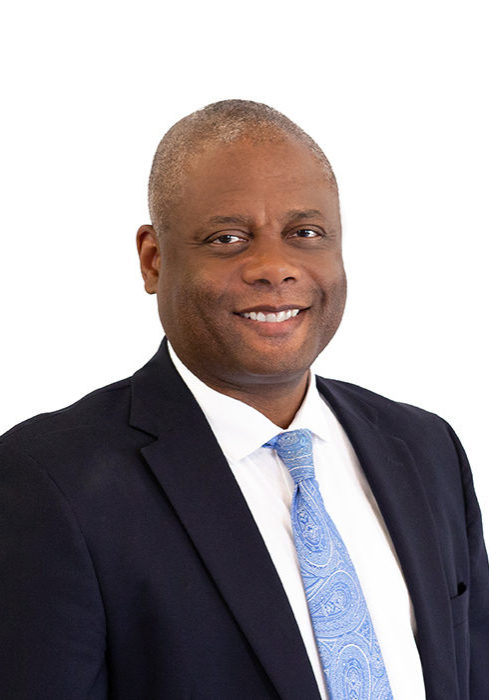
Kevin Lindsey
President
Kevin Lindsey currently serves as the Chief Executive Officer of the Minnesota Humanities Center (MHC).
Prior to that, Lindsey led the Minnesota Department of Human Rights from 2011 to 2019. Lindsey has held numerous governmental and nonprofit board roles, including board chair and interim executive director of Walker West Music Academy. He currently serves on the board of directors for Growth and Justice, an organization seeking to create inclusive employment and business practices for all in Minnesota.
Lindsey received his J.D. and B.S. in Political Science from the University of Iowa, where as a student he served as editor-in-chief of the Iowa Law Review. He was honored by his alma mater with the 2017 Iowa Law Review Distinguished Alumni Award. Lindsey was also an AARP Minnesota and Pollen 2018 “50 Over 50” honoree and received the 2017 Minnesota Lawyer Diversity and Inclusion Award.
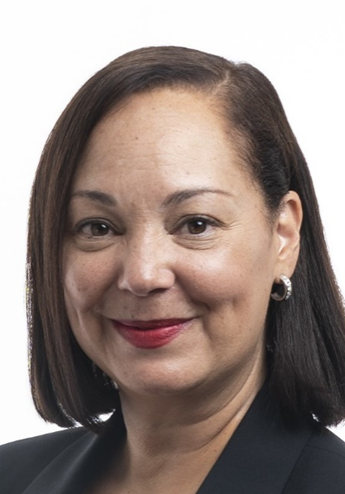
Dana Mitchell
Immediate Past President
Dana Mitchell is a Deputy Attorney General with the Minnesota Attorney General’s Office and an adjunct professor. Previously, she worked as a division manager with the Minnesota Attorney General’s Office, assistant county attorney, public defender, qualified neutral, mediator, and staff attorney for a federally appointed court monitor, which resulted in a $1.25 billion settlement for Black farmers. She is a former law clerk with the Office of the Counsel to the President at the White House. Dana served as MABL VP from 2020-2022 and MABL President from 2022-2024.

Amanda Matchett
Vice President
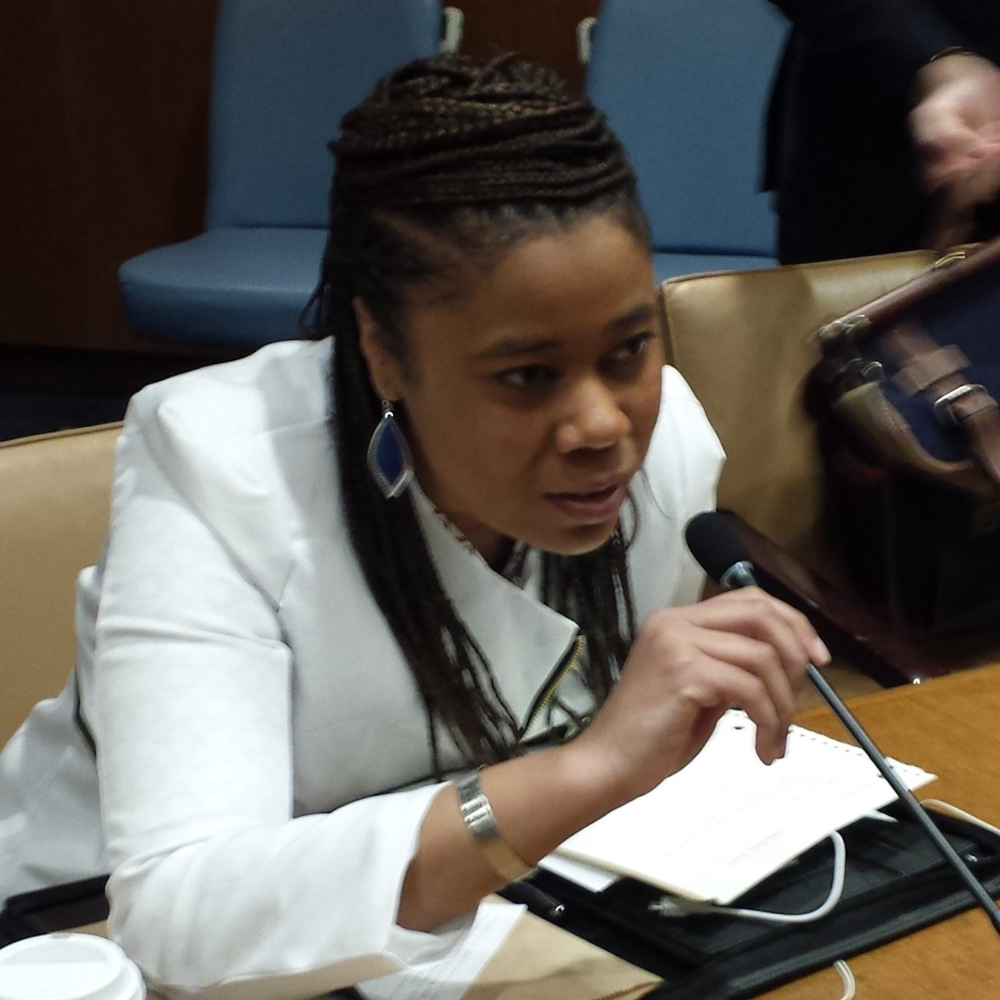
Jules Porter
Treasurer
Jules Porter is an attorney, business law professor, legal analyst, artificial intelligence (AI) developer, and video game developer who enjoys simplifying complex legal issues to make the law more approachable for all. Jules is the CEO of Seraph 7 Studios, a video game development company that makes games for the PlayStation, XBox, and Nintendo. Jules is also an AI Developer and Trainer who works to improve the analytical capabilities of various large language models (generative AI).
Jules is a proud U.S. Marine Corps veteran who earned both her JD and MBA from the University of St. Thomas where she currently serves as an adjunct business law professor. Jules has also earned a B.S. in Aeronautics from Embry-Riddle Aeronautical University and is a seminary theology degree holder.
Jules is committed to community empowerment and service. She is a frequent speaker at local, national, and international schools where she speaks to students about various legal, government, business, civil rights, and science and technology topics.
In her spare time, Jules cheers on the Minnesota Vikings, rocks out to the Pointer Sisters’ music, and enjoys thriller and sci-fi movies.
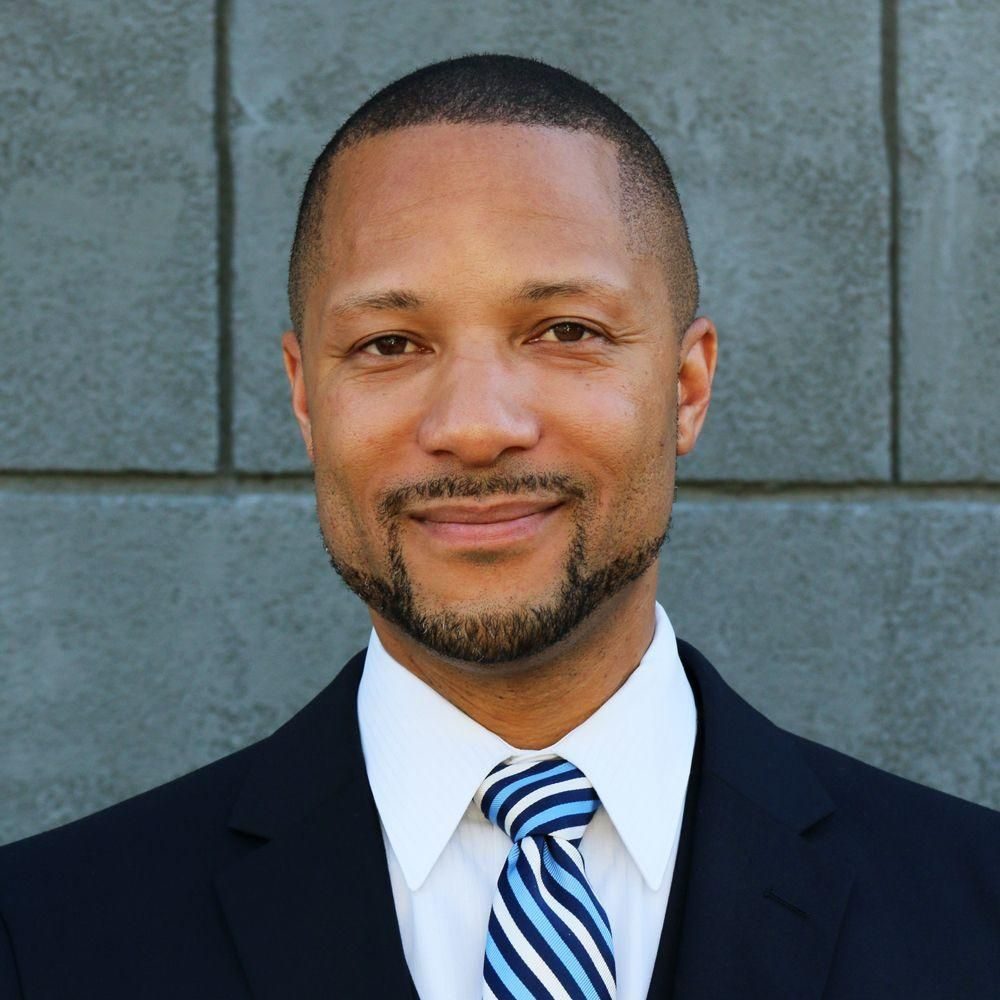
Zaylore Stout
Secretary
Zaylore Stout is an employment law and employment litigation attorney practicing in Minnesota. Zaylore came to the legal profession with 12 years of experience as an outsource human resource consultant to over 350 company’s nationally. He knew that once he became a licensed attorney that he’d leverage that experience to keep employers out of court through the implementation of proactive measures.
Throughout his legal career, Zaylore has worked the Hennepin County Attorney’s Office as well as the Los Angeles Public Defender’s Office. He’s represented small and mid-sized companies in a variety of fields while also conducting workplace investigations for municipalities. Throughout his 19 years in the employment law arena, Zaylore has developed a focus on identifying and addressing the client’s needs, while educating them on ways to prevent the issues from arising in the future.
Zaylore’s practice focuses on sexual harassment, discrimination, wrongful termination, and wage & hour litigation matters. He’s also experienced in alternative dispute resolution measured though mediation and arbitration.
Zaylore and the Firm serve as counsel to small and medium size companies where he advises them on a variety of issues ranging from workplace investigations, exempt vs. nonexempt classification, manager/supervisor training seminars, independent contractor vs. employee classification, severance package negotiations, employee handbook review/development, and responses to demand letters.
Zaylore received his J.D. from St. Thomas School of Law in Minneapolis, Minnesota. He’s also internationally published author and sought after speaker.
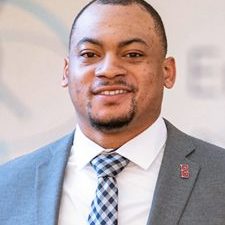
Jeremiah Allison
At-Large Director
Jeremiah Allison holds a Juris Doctor from Mitchell Hamline School of Law and a Bachelor of Science in Criminal Justice and Political Science from Washington State University, where he was a Division 1 football team captain. He currently serves as Legal Counsel for Mergers and Acquisitions at Medtronic, with previous experience as a law clerk at Ramsey County Attorney’s Office. He is the Founder & CEO of The Allison H.O.P.E. Foundation founded in honor of his late mother where he helps others pursue excellence.
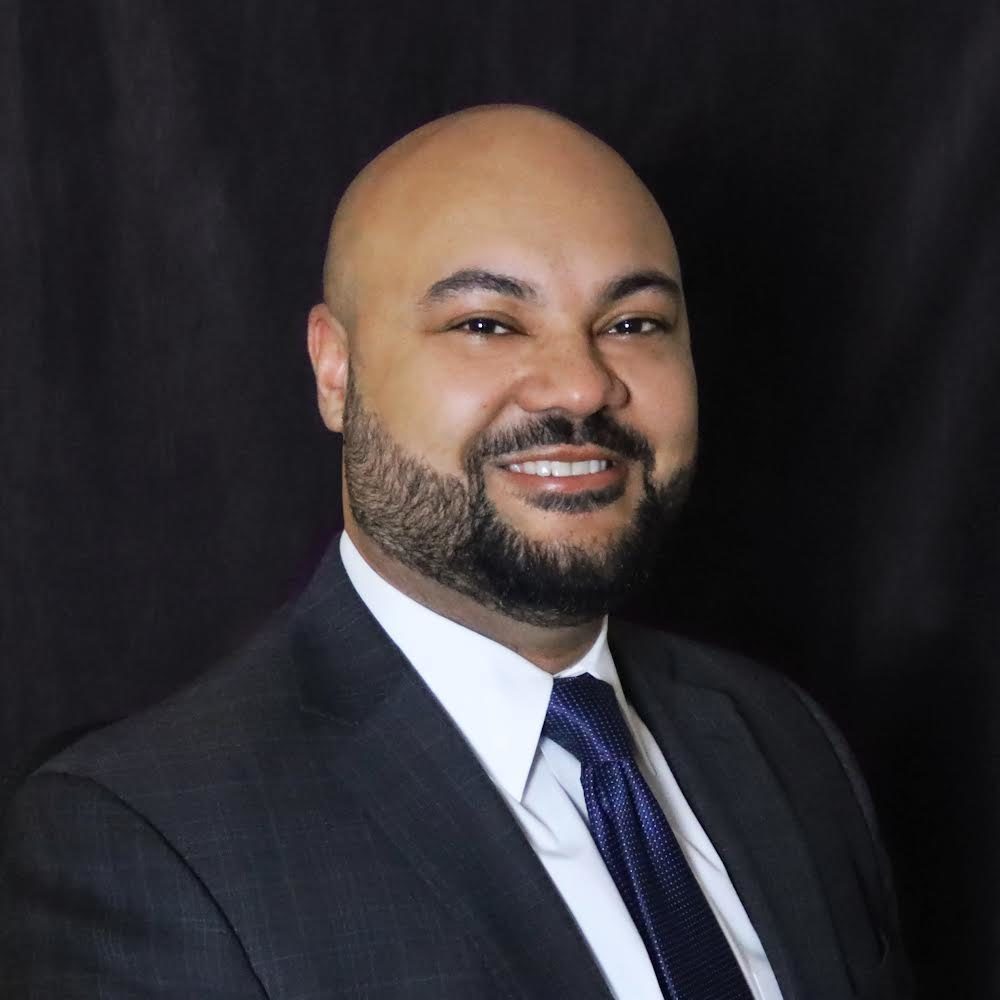
Lee Atakpu
At-Large Director
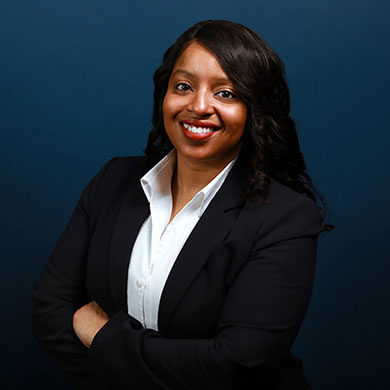
Rashanda Bruce
At-Large Director
Rashanda Bruce is an Associate at Robins Kaplan LLP. Prior to joining Robins Kaplan, she worked at Fox Rothschild. She graduated from Mitchell Hamline School of Law in 2018. While in school, she served as co-president of the Mitchell Hamline Black Law Students Association. She is a member of the Hennepin County Bar Association (HCBA) Board of Directors and member of the Twin Cities Diversity In Practice (TCDIP) Outreach Committee. She is on the Executive Committee of the Warren E. Burger Inn of Court, and co-founder and leadership team member of LOCUS.

Shelley Carthen Watson
At-Large Director
Shelley is the President and CEO of YWCA Minneapolis. A nationally-renowned public higher education labor and employment law expert, she previously served as Senior Associate General Counsel in the Office of the General Counsel at the University of Minnesota. Prior to her role at the University of Minnesota, Shelley was a partner with the law firm of Robins, Kaplan, Miller & Ciresi. A former Deputy Commissioner of the Minnesota Department of Human Rights, Shelley also served as Executive Director of the Hennepin County Bar Association and Hennepin County Bar Foundation. Shelley received her BA from Macalester College, and her J.D. from the Northwestern University Pritzker School of Law.
A former Macalester College trustee, Shelley has served as a board member with both YWCA Minneapolis and Vice-Chair of YWCA St. Paul; Planned Parenthood of North Central States; Minnesota Black Women Lawyers Association, The Blake School and The Blake School Learning Works; Minneapolis/St. Paul (MN) Chapter of The Links Incorporated, former President of Jack and Jill of America, Inc., Minneapolis Chapter; Board Chair of WATCH; Interest For Others; The Playwrights’ Center; Minnesota Minority Lawyers Association; The Fund for the Legal Aid Society; Twin Cities co-chair of the Northwestern University Black Alumni Association, National Association of College and University Attorneys. and the Courage Center. Shelley currently serves on the boards of Children’s Minnesota, Minneapolis Parks Foundation, Minneapolis Downtown Council, Northwestern Pritzker Law School Fund Board, and the Minneapolis St. Paul Business Journal Women’s Leadership Council.
Shelley has continually been recognized for both her professional and community activities. Her professional accolades include the Minnesota Lawyer In-House Counsel Award, recognized as a Top Assistant General Counsel by First Chair, an annual national selection of in-house counsel who have made significant contributions to the legal community; and the National Association of College.
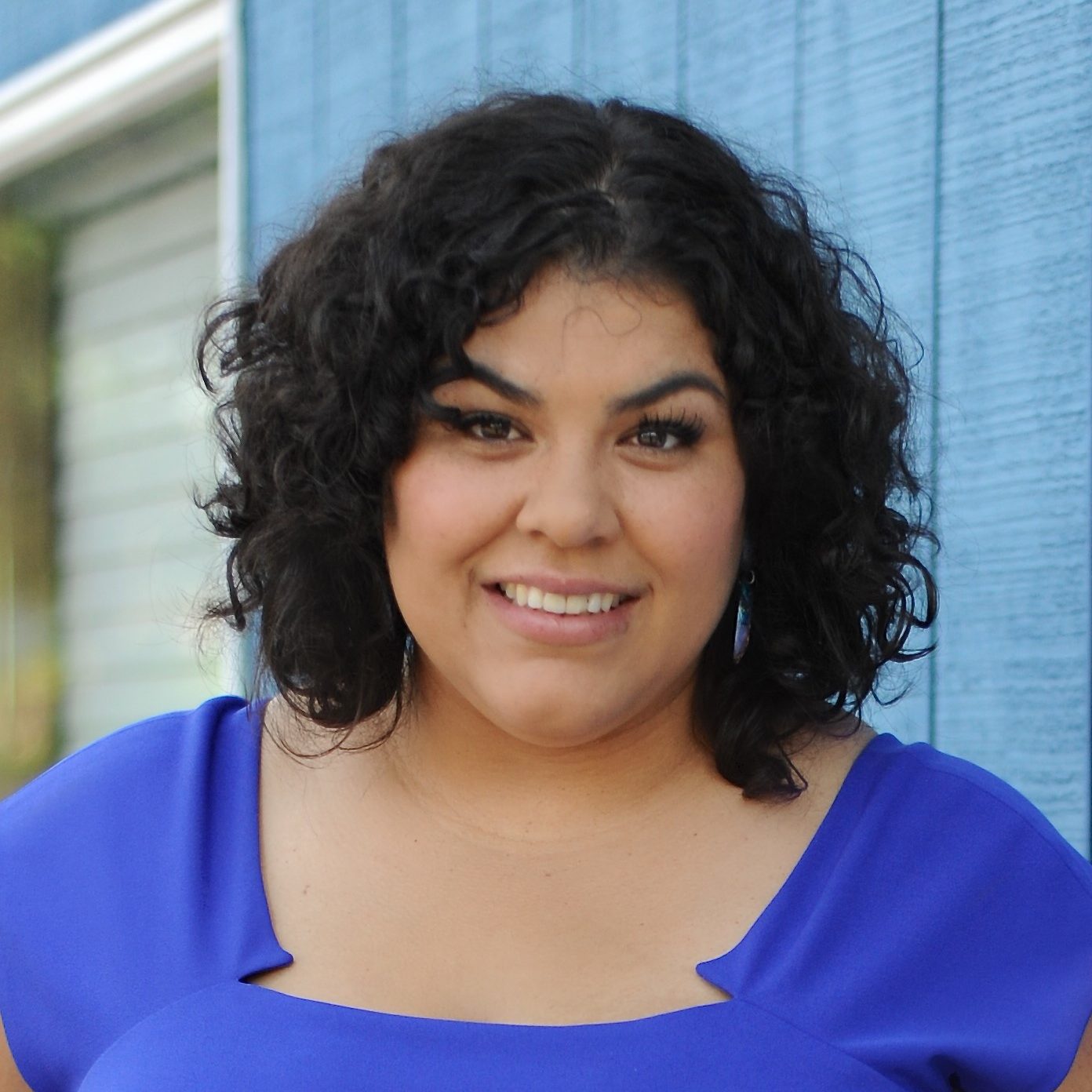
Athena Hollins
At-Large Director
Athena Hollins represents District 66B in Saint Paul at the Minnesota State House. She serves as the Majority Whip of the House DFL party and Vice Chair of the Rules and Legislative Administration Committee. In her tenure at the legislature, she has been a champion for climate and energy justice, affordable housing, education for all Minnesotan children, criminal justice reform, and investing in our BIPOC communities.
Born and raised in Hawaii, Athena is a graduate of Reed College in Portland. She
moved to Minnesota 15 years ago to obtain her law degree from the University of St. Thomas. After marrying her law-school sweetheart, they decided to brave the Minnesota weather for the long-haul, so they bought a house in East St. Paul and
started a family.
Prior to being sworn in, she was the Senior Director of Diversity and Foundations for the Minnesota State Bar Association, and an adjunct professor at University of St. Thomas School of Law. She has previously served on the boards of the Payne Phalen Community Council and the Minnesota Association of Black Lawyers.
Athena believes that effective, inclusive lawmaking can make Minnesota better for all of us.
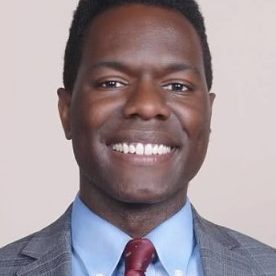
Ian Taylor, Jr.
At-Large Director
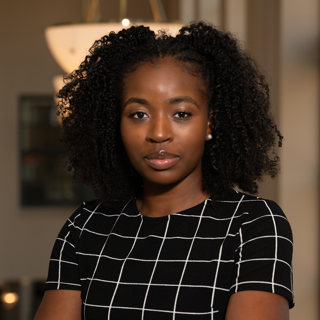
Braxton Thomas
Student Director - Mitchell Hamline School of Law
Braxton Wheeler Thomas is a native Mississippian and a 3L at Mitchell Hamline School of Law in Saint Paul, Minnesota. She earned a Master of Arts in Southern Studies/Documentary Film from the University of Mississippi and a Bachelor of Arts in History from Millsaps College, where she was a varsity athlete on the women’s basketball team. Before entering law school, she worked as the staff assistant for Congressman Bennie G. Thompson, serving Mississippi’s second congressional district. As an aspiring civil rights attorney, her interests include social justice, legislative affairs, and sports law.
While in law school, Braxton has served as a 1L section representative and member at large for the Student Bar Association, interned for the Mississippi Center for Justice, and worked as a certified student attorney in the Mitchell Hamline Economic Inclusion Clinic.
Braxton is a proud member of Alpha Kappa Alpha Sorority, Incorporated and currently serves as the National Historian for the National Black Law Students Association (NBLSA).
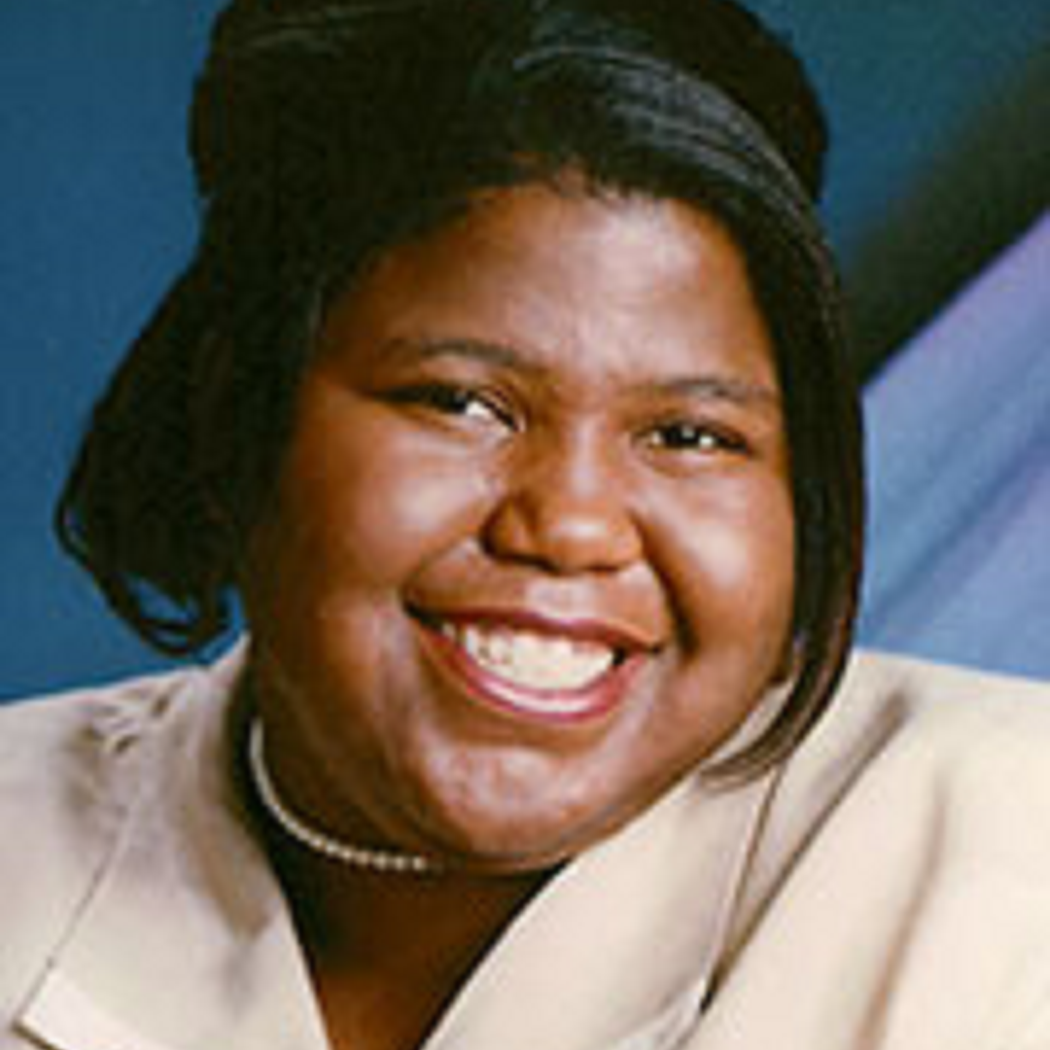
Patience McHenry
Student Director - University of Minnesota School of Law
Ms. McHenry is a graduate of the University of Notre Dame and holds a master's degree in advanced education. Born in Oakland, California, and raised in Texas and Louisiana, she began her career in the Bay Area, focusing on advocacy for BIPOC and indigent communities--including ex-gang member rehabilitation and support for homeless foster youth. Her previous experience as a K-8 educator nurtured a passion for fostering democratic, global citizenship in young minds.
Transitioning to law, Ms. McHenry earned the dean's merit scholarship and Ron Hunter's Third World Caucus scholarships to the University of Minnesota Law School, where she was elected by her peers as a class representative. She will serve on the University's law journal, The Journal of Law and Inequality. Additionally, she serves her law school community as an academic coordinator for the Black Law Student Association, DEI coordinator and a national Next Generation Leader for the American Constitution Society and as a leader for the women's law student association. Recently, Ms. McHenry was selected as a student instructor for the course Law in Practice, bridging doctrinal studies to real-world litigation and transactional skill development.
Her legal interests include litigation and appellate advocacy--melding logical analysis, writing and research and insights on humanity that only real-world experience can provide. Her legal experience includes a law clerk position with administrative law judges at the Illinois Human Rights Commission and she will be completing upcoming corporate and judicial externships.
Outside of law, Patience enjoys mentoring entrepreneurs, registering trademarks, tutoring the LSAT, escape rooms, road trips and restoring second-hand furniture.
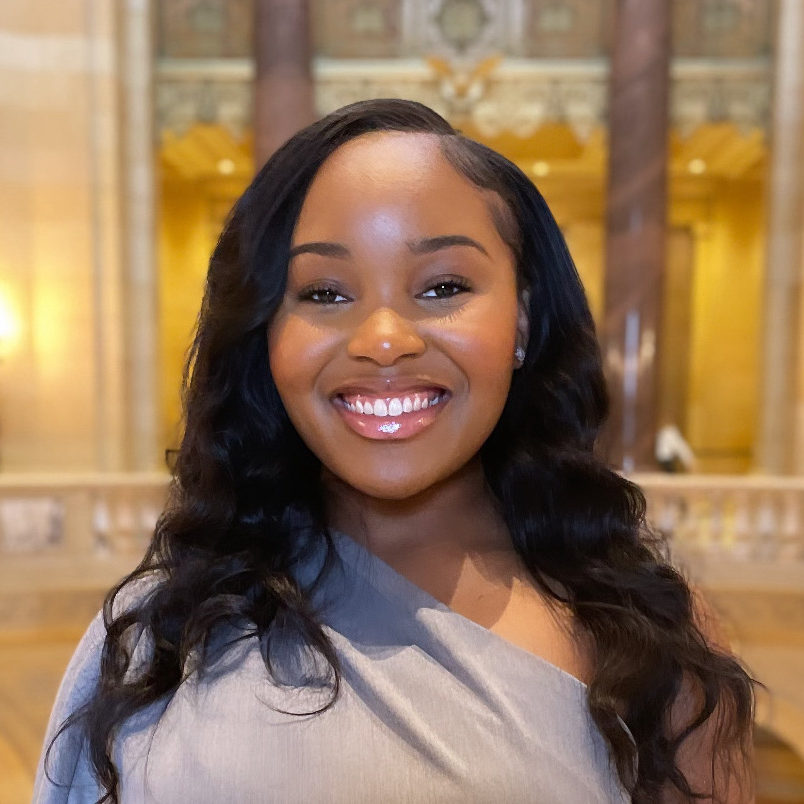
Aniyah Braveboy
Student Director - University of St. Thomas School of Law
Aniyah Braveboy is a rising 3L at the University of St. Thomas School of Law, class of 2025. She completed her undergraduate studies at Arizona State University, majoring in Business: Public Service and Public Policy with a minor in Social and Behavioral Sciences.
During her time in law school, Aniyah has been actively involved in several leadership and competitive roles. She serves as the Regional Director for the Midwest Black Law Students Association's Constance Baker Motley Mock Trial Competition and was President of the Women’s Law Student Association. Additionally, she acts as the Diversity, Equity, and Inclusion (DEI) Liaison for the Student Government. Aniyah has also been recognized as a Fellow by the American Bar Association’s Forum on the Entertainment and Sports Industries and has competed in the Constance Baker Motley Mock Trial, where her team placed fourth regionally.
In her professional pursuits, Aniyah gained experience as a Summer Associate at Ziliak Law, where she worked on financial services, litigation, entertainment, and media law cases. She has also served as a Certified Student Clinician at the University of St. Thomas School of Law’s Nonprofit Clinic, where she established six nonprofit organizations, and as a Law Clerk at the Hennepin County Attorney’s Office, participating in several criminal trials.
Aniyah’s commitment to community service is evident through her volunteer work with Lawyers for the Creative Arts in Chicago and her role as a Board Member for E7 United in Minneapolis, where she empowers youth by facilitating access to scholarships and educational opportunities.
Aniyah's passion for law, coupled with her leadership skills and dedication to community service, positions her as a promising future attorney in the fields of litigation, entertainment, and intellectual property law.
